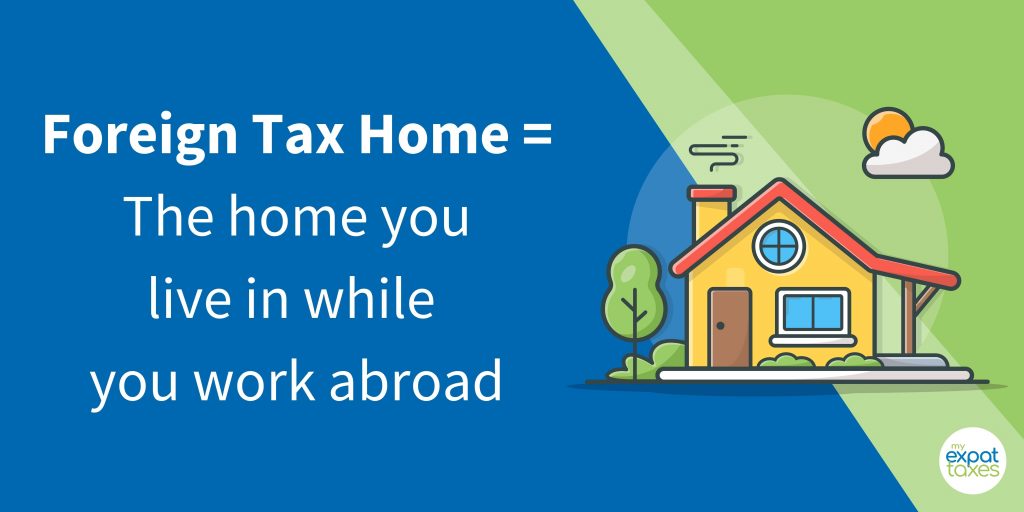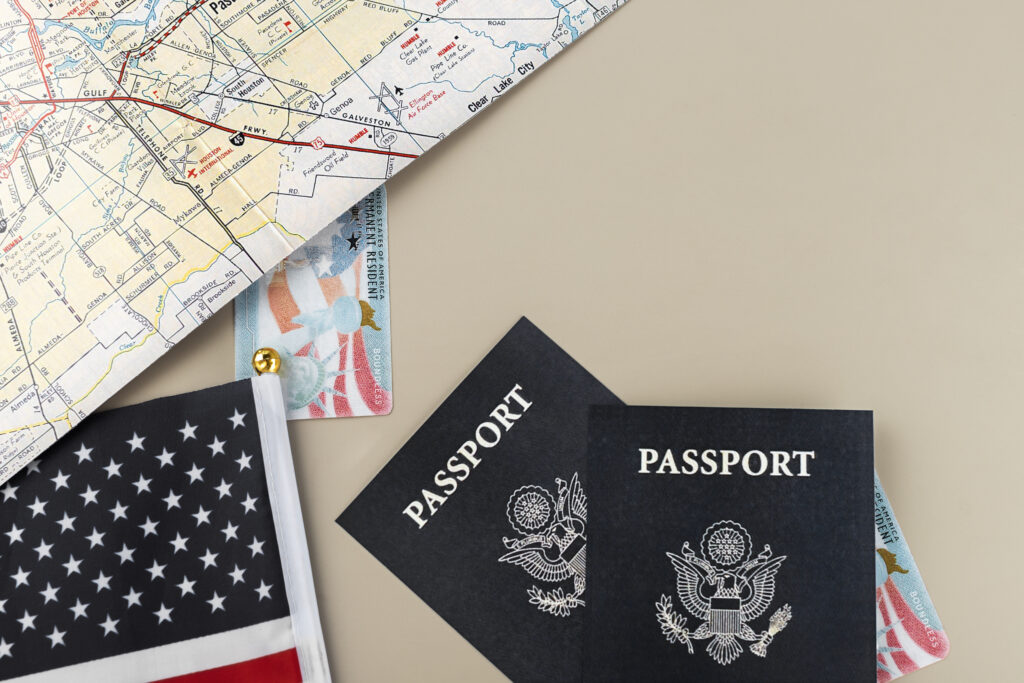Do I live in a Foreign Tax Home? A Guide for US Expats
December 16, 2022 | Double Taxation | 5 minute read
Expat Tax Blog. Tax Tips for US Americans abroad.
Updated December 27, 2024
 All blogs are verified by Enrolled Agents and CPAs
All blogs are verified by Enrolled Agents and CPAs
Updated December 27, 2024
A Foreign Tax Home is the home you live in while you live and work abroad. The IRS bases your tax home on where you are employed. If you live and work outside the US, your tax home is likely a Foreign Tax Home rather than a US one. However, owning or renting a property in the US or abroad only partially shows which is your tax home. The tax home test can determine if you have a Foreign Tax Home.
Should you meet the requirements of your foreign tax home, you may qualify for the Foreign Housing Exclusion or Deduction (FHE). FHE is a tax exclusion or deduction for your foreign housing costs. However, receiving this tax deduction is more complex than living abroad – you’ll have to pass the tax home test! MyExpatTaxes is here to help you pass the tax home test for your Foreign Tax Home.

Foreign Tax Homes and the Foreign House Exclusion
Suppose you have a tax home in a foreign country, and you’ve developed personal ties. In that case, you may be eligible to claim the Foreign Housing Exclusion (FHE) or Deduction.
The FHE is similar to the Foreign Earned Income Exclusion (FEIE). To qualify for the Foreign Tax Home test, you must meet either the bona fide residence test OR the physical presence test.
Note! If you and your married spouse live and work abroad together, only one can claim the FHE on your expat tax return.
Bona Fide Residence Test
You meet the bona fide residence test after spending one uninterrupted tax year in a foreign country. The entire tax year you must fulfill would be from January 1st until December 31st. Although you may leave your foreign country for short visits to the US during this period, they must be reasonably short trips. After an uninterrupted period, including an entire tax year, you meet the requirements as a bona fide resident. Your bona fide residency period ends when you leave your foreign residence and go back to the US. You can have different foreign residencies during the year as long as you are actually a registered resident in each of your different tax homes.
Physical Presence Test
To meet the physical presence test, you must spend 330 full days within any consecutive 12-month period. While the 12-month period must be consecutive, the 330 full days do not. You only need to be physically present outside the US for those 330 full days, regardless of your reasoning!
Note! Full days mean a 24-hour period that begins and ends at midnight. For example, if you arrive in the new foreign country at 11 am July 23rd, your first full day would be midnight on July 24th.
Tax Home vs. Residence
You already know your tax home is the home you live in where you are employed and engaged in your work. However, to pass the tax home test and meet the requirements for Foreign Housing Exclusion or Deduction, your tax home must have social ties, too.
Where is your abode?
Your “abode” is what the IRS refers to as your location where you have ongoing personal ties. Think of an abode as where your family home is. These social ties help paint a picture of your life in this foreign country; they show the difference between the place where you live and meeting the tax home test.
More specific examples of social ties could be:
- Opening a foreign bank account
- Your spouse or family joining to live with you
- Buying a car
- A local cellphone plan
- Engaging with religious services or local organizations.
Let’s take a look at some examples to help determine if you meet the tax home test for the FHE:
Example 1:
Your job abroad has a 28-day on/ 28-day off schedule. You rent a room in an apartment while you work and return to your family home in the US during your off time. Your social ties and, therefore, your abode is in the US. You do not pass the tax home test and do not qualify for foreign housing deductions or exclusions.
Example 2:
You got a job in a foreign country and will stay for the foreseeable future. After your first year, you love it! Your spouse, children, family pets and furniture join you from the US and settle into your home abroad. Your children enroll in school, and you and your spouse open new bank accounts in a foreign country. You’ve all become active community members by joining sports, local charities and attending religious services. Although you still own your home in the US, you’ve rented it to someone else. You meet the required social ties for an abode, and your home in the foreign country meets the requirements for the tax home test. You can claim your moving and living expenses within the Foreign Housing Deductions or exclusions!
What Makes Income Foreign Earned?

So you’ve met the tax home test and either the bona fie residence test or the physical presence test, but to receive the FHE, your income must be Foreign and must be Earned! Income is foreign when you have physically worked abroad for that earned income. But what counts as earned income? Most commonly, earned income is wages and salaries but includes tips, professional fees, bonuses, and commissions. So, where you work will determine if it is foreign earned. Suppose you receive payment for your salary from a US tech company for work done in Germany. In this case, that income is foreign earned, even if it’s deposited into your US bank account.
Social Security benefits, pensions, capital gains, alimony, dividends, and interest are all examples of income that are not earned, whether received in a foreign country or the US, so they don’t count at all.
How do I Claim the FHE for my Foreign Tax Home?
Congratulations! You meet the requirements for the FHE – all you need to do is claim it! For the Foreign Housing Exclusion and Deduction, you’ll need to file Form 2555 when completing your expat tax return and include how much you spend on your foreign housing expenses. According to the IRS, housing expenses qualified housing expenses to include reasonable expenses actually paid or incurred for housing in a foreign country. Some examples of qualified expenses could include rent, utilities (other than telephone charges), personal property insurance, nonrefundable fees paid to obtain a lease, rental of furniture and accessories, residential parking, or household repairs.

Written by Nathalie Goldstein, EA
Nathalie Goldstein, EA is a leading expert on US taxes for Americans living abroad and CEO and Co-Founder of MyExpatTaxes. She contributes to Forbes and has been featured in Forbes, CNBC and Yahoo Finance discussing US expat tax.
December 16, 2022 | Double Taxation | 5 minute read










